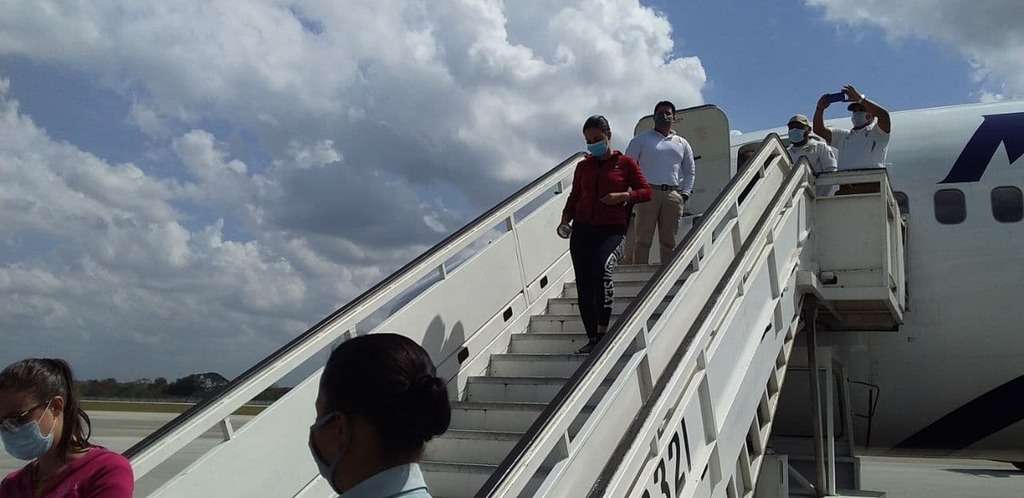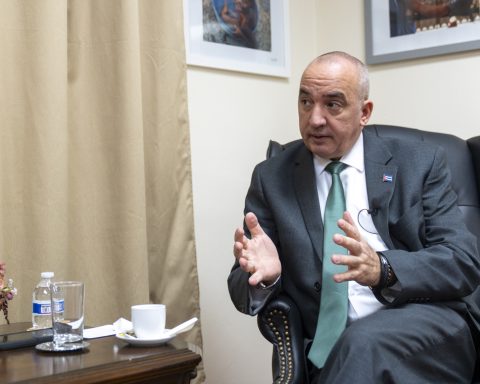After the few announcements that are known of the reform to health, mentioned by the President Gustavo Petro and the head of the portfolio Carolina Cork, Colombians presented their perceptions regarding the system, the actors and its operation.
(See: post-pandemic syndrome).
The signature of surveys Invamer, carried out the Great Survey of the Health System in Colombia for the National Association of Businessmen of Colombia (Andi), which had a total of 2,704 questionnaires distributed in all parts of the country, with a margin of error of 1.88%.
In the results reflected in the study, 67% of Colombians, at a national level, are not willing to give up their current service to move to a public one completely. However, according to the report, 30% are willing, that is, almost one in three, while 3% do not know.
At the rural level, the population indicated disagreeing with giving up the current service with 72%, like the urban area, expressed the same intention with 66%. On the other hand, most of the regions indicate that they are in the same line of disapproval. For example, the regions that stood out the most with this decision were Antioquia and the Coffee Region (75%), the Caribbean (68%), the Eastern Center (66%), Bogotá (65%) and the Western South (61%).
(See: change not destroy).
And although renouncing the service was not the only discovery, it should be noted that today the debate on the elimination of Health Provider Entities (EPS) in Colombia has been taking place, after the clues given by the Ministry on the points of the health reform, the text of which is still unknown today.
In this matter, six out of 10 respondents said they disagreed with the elimination of these entities at the national level, that is, 63%, while 32% indicated that they agreed and 5% did not know or did not respond.
Additionally, in rural and urban areas, a similar perception was targeted. In rural areas, 68% of those surveyed stated that they disagreed with this policy, as did 62% in urban areas. While 26% of the rural and 33% of the urban, indicated yes to agree.
Colombian health system.
private file
Looking towards the regions, 69% of the population of Antioquia and the Eje Cafetero disapprove of the elimination of the EPS, like 64% of the Caribbean. 63% was reflected in the Central East, 60% in Bogotá and 58% in the South West. The regions that most agree with the elimination are Bogotá (36%) and Sur Occidental (34%).
(See: Six out of 10 Colombians believe that EPS should not be eliminated).
Faced with this issue, Bruce Mac Master, president of Andi, stated that “we cannot afford that the system does not work, because the cost of this is assumed by people’s health. We are talking about their lives. This survey places in the present that there are many things that need to be improved, but also that there are many others that are working. In this exercise we are going to identify which are the opportunities for improvement”.
On the other hand, 54% of those surveyed are “very” concerned that the resources of the health system are managed only by public entities such as the Government or the Ministry, contrary to 26% who are not worried about anything and 17% He’s sorry, but in a moderate way.
It should be noted that by region, the behavior of great concern remained between 50% and 60% of those surveyed. The rural (56%) and urban (53%) areas had a similar dynamic.
(See: Health reform: uncertainties due to lack of socialization).
Likewise, it should be noted that in the survey carried out by Andi and Invamer, 58% of those consulted consider that the health system should have some adjustments, while 32% believe that it must change completely.
Faced with the changes, 45% of Colombians consider that there must be greater agility to be attended, as in terms of access, 55% consider that there is a “delay” in assigning appointments. But, 73% of the national total, assured that he can access the health system when required, contrary to 27% who said they could not do it.
However, Martín Orozco, general manager of Invamer, pointed out that according to the data provided by the survey: “Where there is formal employment, there is a higher percentage of people belonging to the contributory”. Thus, according to the report, 46% of the people surveyed are affiliated to the contributory regime, while 54% belong to the subsidized one.
(See: Health reform will go through extraordinary sessions of Congress).
A discussion that should take place with the Government of Colombia?
In accordance with Bruce MacMaster, the survey participates as a component “rich in terms of information” so that opinion makers around the issue of health can understand where the failures are and the opportunities for improvement, with respect to what Colombians believe. In turn, he reported that the survey is widely offered to the Government.
(See: Health reform: contributory and subsidized regimes would be eliminated).
“In any case, we already sent it to you, so that you have it. If there is space in which we can deepen in terms of data, but also in the interpretation to be able to discuss what is happening in the sector and to be able to enrich this debate”, said the union leader.
BRIEFCASE


















